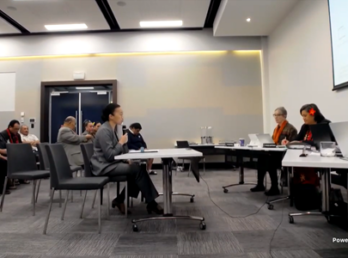COVID-19: Insolvency Law Changes articles
Date
6 Apr 2020
Related Expertise
Steadying the Ship – What you need to know about the proposed Safe Harbour and Business Debt Hibernation Scheme changes to the Companies Act 1993.
On Friday, 3 April 2020, the Minister of Finance, Grant Robertson announced new legislative measures are in the pipeline to support businesses facing insolvency as a result of the financial crisis presented by COVID-19.
The announcement includes a number of significant changes to the Companies Act 1993 (‘Act’) intended to cushion the economic impact for New Zealand. The major changes announced propose:
- to give directors of companies facing significant liquidity problems because of COVID-19 a ‘safe harbour’ from certain claims under the Act; and
- enable businesses affected by Covid-19 to place existing debts into hibernation on agreement of at least 50% of their creditors until they can start trading normally again.
We look at these key changes in more detail below.
Safe Harbour
The proposed safe harbour is intended to allow businesses to keep trading rather than prematurely closing. If businesses continue to operate and people remain employed the economy is less likely to grind to a halt and there will be fewer impediments to business resuming as normal when the health crisis ends.
The safe harbour is likely to temporarily relax two of the key duties of company directors:
- The duty to avoid reckless trading (s 135 of the Act); and
- The duty to avoid incurring an obligation when the director does not believe at that time on reasonable grounds that the company will be able to perform the obligation (s 136 of the Act).
The safe harbour will give directors a defence to any Court claim alleging breach of these duties during the next six months (from 3 April 2020) provided that:
- The directors believe, in good faith, the company is facing or is likely to face significant liquidity difficulties in their company or paying their creditors in the next six months as a result of Covid-19;
- The company was in a position to pay its debts as they fell due on 31 December 2019; and
- The directors in good faith consider it is more likely than not that the company will be able to pay its debts as they fall due within 18 months, either because trading conditions improve, or accommodations are likely to be able to be reached with creditors.
However, the safe harbour is unlikely to provide directors with a catch-all safety net.
- If the directors have not met these criteria, then they will still be exposed to claims under sections 135 and 136 of the Act.
- Directors will still need to take care they are not breaching other duties including their overarching duty of acting in good faith and in the best interests of the company (s 131 of the Act).
- There is also a risk, notwithstanding the safe harbour, that claims could still be made against a director for other reasons. For example, for oppressive, unfairly discriminatory or unfairly prejudicial conduct (s 174 of the Act) or if for example, misrepresentations are made about the company’s solvency, for misleading and deceptive conduct under the Fair Trading Act 1986.
The Business Debt Hibernation Scheme
The proposed scheme is intended to enable businesses affected by COVID-19 breathing space to talk to their creditors about prioritising some debts and deferring others. Key features of the scheme include:
- A company that meets the threshold (yet to be determined) will have the option of notifying creditors of an intention to put forward a proposal that the company be placed into business debt hibernation.
- Once creditors are notified of the proposal, creditors will have one month to vote on the proposal.
- An automatic minimum one-month moratorium preventing creditors from enforcing debts will apply from the date creditors are notified of the proposal. Creditors will need to vote on the proposal within that month.
- A further six months moratorium on the enforcements of debts will be binding and apply if 50% of the creditors (by both number and value) agree to the stand still.
- The directors will retain control of the company during the moratorium and the company can continue to trade subject to any restrictions agreed with creditors (unlike voluntary administration, liquidation or receivership where the company is placed in the hands of an external administrator).
- The scheme will be available to trusts and partnerships as well as companies.
- However, the scheme will not extend to licensed insurers, registered banks and non-bank deposit takers, or interestingly to sole-traders (a common form of business ownership in NZ).
For creditors faced with a business hibernation scheme debt freeze there may be alternative options for enforcing debts. Many creditors providing credit to SMEs require personal guarantees from the directors or shareholders. From what we know about the proposed changes to the Act, there is nothing preventing creditors from pursuing debts where there is a personal guarantee in place. This may depend on the wording of the guarantee around what triggers a default and whether the guarantor is considered a principal debtor. For this reason, we recommend creditors seek legal advice regarding their rights once the law changes are finalised.
Watch this space
Legislation has not yet been passed and there is significant uncertainty around how the safe harbour and business debt hibernation scheme rules will be enacted and applied. In the meantime, there remains uncertainty surrounding the scope of these new rules. Parliament has been suspended until 28 April 2020 and we may have to wait until then to see the proposed bill. However, the Minister has signalled the changes are intended to have retrospective intent from 3 April 2020.
If in doubt, seek advice.
The current environment is a minefield for directors. As discussed in detail here directors are facing numerous issues during this uncertain period. Given the proposed law changes:
- Directors or shareholders that are concerned about their company’s solvency should seek legal and accounting advice urgently.
- When it comes to business debt hibernation schemes, directors will need to be careful not to mislead creditors when putting forward the hibernation proposal. In any case, but particularly if the value and number of creditors is large, it would be prudent for directors to take professional advice, ideally from insolvency specialist lawyers, accountants and insolvency practitioners, when preparing the compromise. The proposed law change may mean they avoid reckless trading claims, but they could still end up being liable to creditors for other reasons.
- Creditors should seek advice about how the law changes affect them when the changes are enacted. If facing a business debt hibernation scheme they should be careful to consider what their rights are, how they can protect those rights and also what other options for recovery might be available to them.
While cashflow will undoubtedly be tight, the cost of advice could prove to be significantly less than the consequences if you get it wrong.
Stace Hammond has extensive experience and expertise in relation to corporate governance, insolvency, restructuring, and debt recovery. We have been delivering solutions for clients since 1912. We also have a strong network of insolvency practitioners, accountants and other professionals ready to assist you and your business in these difficult times. If you need any assistance, please contact one of our experts for insolvency Oscar Ward, James Cochrane, Giles Brant or Phil Morris; and for restructuring Andrew Comer and Emma Falconer. Now is the perfect time to get your ship in order.
The above overview has been provided for general information purposes only. It is not, nor is it intended to be treated as, legal advice, and is subject to change without notice.
Subscribe
Get insights sent direct to your email.



































